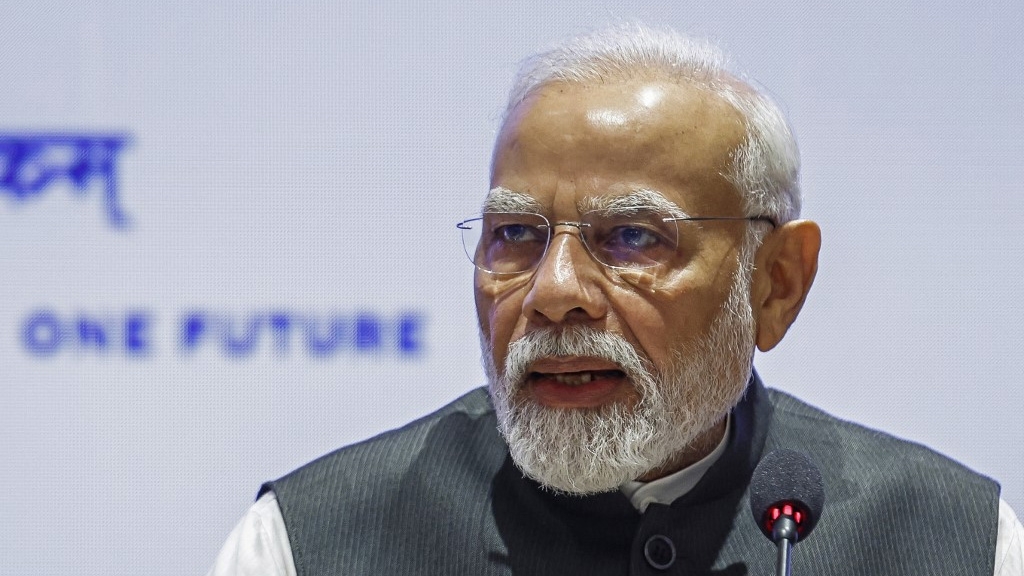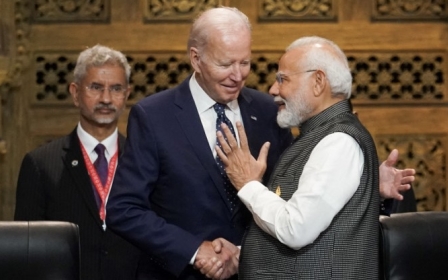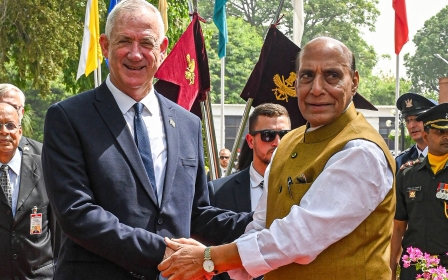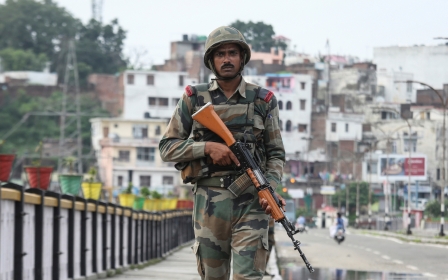India-Canada spat: Could this be New Delhi's Israel moment?

Just a few days ago, the Indian government was flush with accolades after holding the G20 summit with western powers in New Delhi. Weeks earlier, there had been much pride over the country’s successful lunar mission.
India had begun to look like a significant western partner, with growing technological gravitas and diplomatic capacities to help shape the evolving world order.
But the spell now appears to have been broken, after Canadian Prime Minister Justin Trudeau last week alleged that Indian agents might have been responsible for the murder of a Sikh Canadian man.
Hardeep Singh Nijjar, who was linked with the Khalistani separatist movement, was gunned down in June. Many voices in western media have demanded a tougher line if the accusation is proven.
But India doesn’t seem excessively worried about Canada, as it swiftly expelled a Canadian diplomat from New Delhi and issued a travel advisory to its citizens residing in Canada. India seems to be counting on its value to the US, hoping that the issue will be contained without serious repercussions.
New MEE newsletter: Jerusalem Dispatch
Sign up to get the latest insights and analysis on Israel-Palestine, alongside Turkey Unpacked and other MEE newsletters
With India being a key player in the American pivot to the Indo-Pacific, a strategy that cannot be played out without New Delhi’s cooperation, the Indian government surely hopes that Washington will not treat it the same way it has treated other allies in South Asia, such as Pakistan.
This could be India’s Israel moment, where assassinations in a foreign land (or treatment of a minority group at home) are overlooked due to its strategic significance.
Sending a message
The row with Canada is centred on the Khalistan movement, which seeks to create a homeland for Sikhs in the Punjab region. Advocates say this is an urgent human rights issue, while India portrays the movement as a threat to its territorial integrity and accuses Canada of providing “shelter” to Khalistani extremists.
Nijjar was reportedly working to organise a referendum on the creation of an independent state of Khalistan. For India, he was not just a separatist, but also an accused terrorist, wanted by authorities in connection with several attacks, including a 2007 cinema bombing.
New Delhi has long accused Ottawa of ignoring its security concerns. In 1985, Canada was the country of origin for Air India Flight 182, which was bombed by Sikh extremists, killing all 329 people on board, mainly Canadians of Indian origin. Although several people were arrested and tried in the case, only one was ultimately convicted: Inderjit Singh Reyat, a mechanic living in British Columbia. He was paroled and subsequently released from a halfway house in 2017.
Should Canadian law and order become a sacrificial lamb just to appease a US ally?
Indian Prime Minister Narendra Modi’s government appears to be sending a message to the world that it means business when it comes to security matters, including through the elimination of suspects. In Canada, the Trudeau government has upped the ante by airing this issue publicly.
While the support of Sikh Canadians is important to Trudeau, his actions highlight another crucial point: How far should western states allow their strategic allies to go in violent pursuit of their domestic interests? Should Canadian law and order become a sacrificial lamb just to appease a US ally?
The situation puts immense pressure on the US, especially President Joe Biden, who amply exhibited his fondness for Modi at the recent G20 summit. But Canada is also an important US ally. And while India has previously mustered international sympathy vis-a-vis what it perceives to be threats emanating from Pakistan, western publics are unlikely to take kindly to the hounding of Sikhs, a community that has been well integrated in the West.
While India might not receive as harsh global censure as Russia did over the 2006 assassination of Alexander Litvinenko on British soil, or Saudi Arabia over the 2018 killing of journalist Jamal Khashoggi, it will not escape repercussions if Canada provides solid evidence to back up its allegations. The US could use the opportunity to gently discipline the Modi regime, which has generally made western states uncomfortable with its human rights record and flawed democracy.
The US will then have to shoulder the burden of saving its partnership with New Delhi, while conveying the message that such operations will not be tolerated. The Indian state and Hindutva activities will be watched more closely by authorities. On the cusp of solidifying its status as a western ally, India has been pinpointed as a security challenge.
The views expressed in this article belong to the author and do not necessarily reflect the editorial policy of Middle East Eye.
Middle East Eye delivers independent and unrivalled coverage and analysis of the Middle East, North Africa and beyond. To learn more about republishing this content and the associated fees, please fill out this form. More about MEE can be found here.





